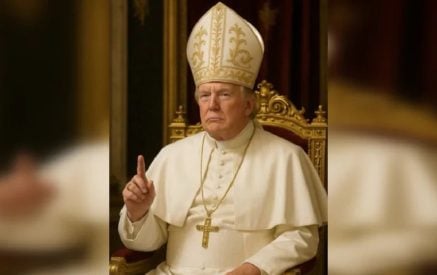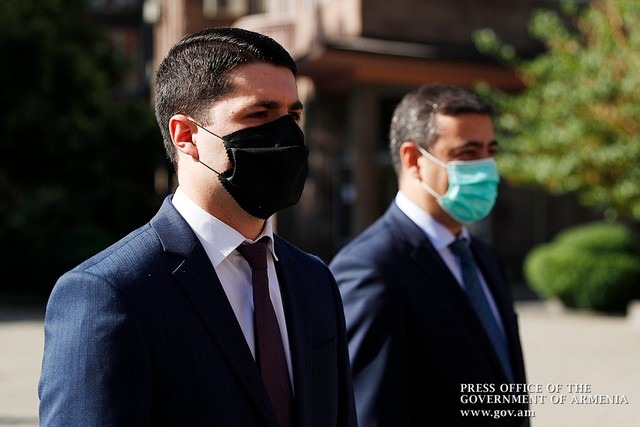To navigate in physical space, you need a compass. And what is required to stay aware of social space and time? The European Enlightenment period (roughly from the 17th century to the second half of the 20th century) answered that question unequivocally: you don’t need anything; it’s up to you to choose what you like. Let me explain it with an accessible example. Do you want to get acquainted with the architecture of Yerevan? You can study the Opera building, the “Khrushchevkas” of Ajapnyak, or the stalls of Noragavit artisans. The choice is yours. Who can seize your will and dictate some standards and orientations?
But from the second half of the 20th century, intellectual circles realized this approach was at least flawed. This awareness is especially maturing in the West. We are a bit behind, but still paying some tribute to liberal ideas. Thus, a girl from a remote village wears “velvet velour” in the city, thinking it is fashionable. Meanwhile, Western thinkers have emerged from that “velvet velour” of enlightenment in recent decades. As the American historian Timothy Snyder writes, believing that the whole world is inevitably moving toward liberal democracy leads to a “mental coma.”
An abstract human being, outside of culture, tradition, and historical narratives, essentially does not exist. It turns out that religion is essential as a social institution. Of course, religion should be understood in a broad sense; it can also be “civil.” But in all cases, people need to be oriented. They need myths, stories, and meanings. They also need rituals that will unite them and create solidarity.
That explains the partial revival of religion. As a rule, religion is no longer perceived as a collection of ridiculous prejudices. Of course, traditional religious institutions are also being reformed, adapting their activities to the so-called “post-secular” era. The Catholic Church was the first to take steps in this regard, and if we follow the movement of the last Popes of Rome, starting with John Paul, we will see how the Holy See is trying to increase its significance in the world.
Read also
In short, the demand for new social “compasses” – meanings has arisen in the current period. This demand is not massive because the “masses” have a long way to go to realize it. However, it is clear that what people believed 30-40 years ago no longer inspires any confidence.
It raises the question: who formulates these meanings? If the question was asked in the Middle Ages, the answer would be clear: meanings are formulated in monasteries by monks who possess sacred knowledge. In the 21st century, placing such a heavy duty on the clergy alone would not be realistic.
But nations with a centuries-old monastic culture (such as we Armenians certainly are) should be able to create secular centers that will continue that culture to some extent. It would be naïve to think that in our time, those who formulate meanings must necessarily wear paraja or be ordained as deacons. (19th-century Russian theologian Ignatius Brianchaninov wrote that one can be a monk while wearing a European jacket). On the other hand, it would be equally naive to assume that these meanings will immediately become a “mass consumption product” and will immediately unite society and bring it out of the swamp.
It is about a unique dedication and spiritual service when a person is not cut off from the world, lives an ordinary life, but is focused on his mission. In the 1930s, serious Soviet scientists (historians, philologists, philosophers) wrote severe works, knowing they might not be published during their lifetime. But they risked their lives for their work. Now, of course, there is no problem with being published. But the problem is serious again: to reach people’s brains and hearts. Then it was Stalin’s dictatorship; now it’s social media “democracy.”
However, this cannot be a reason for disappointment or depression. People who seek and formulate meanings must persist in their work, with the persistence of a monk.
Aran ABRAHAMYAN



























































